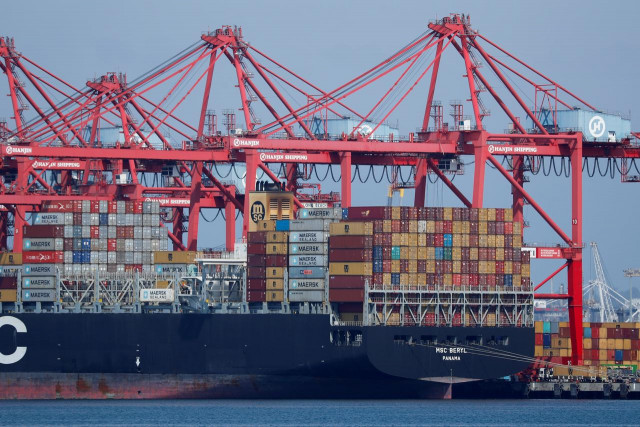Pakistan can save $5-6b in maritime trade through PNSC
Official says it will allow buying more oil carriers to increase capacity

A Reuters file photo.
The recommendation was made by PNSC former executive director Syed Muhammad Obaidullah in a webinar titled ‘Global Oil Crisis Amidst Covid-19 and its Impact on Shipping Sector: Challenges and Prospects for PNSC’ on Thursday.
Explaining the reasons for the current oil crisis, he said that chaos started with the conflict between Russia and the Kingdom of Saudi Arabia over oil supply.
“Though the conflict got resolved following the intervention of US President Donald Trump, the outbreak of Covid-19 pandemic soon after rendered the resolution almost irrelevant,” he said.
“With the suspension of air operators, transport, and rail services coupled with the lowest level of industrial productivity, the demand for oil dropped significantly.”
He detailed that the development had a devastating impact on the oil markets around the globe in general, and the US market (WTI) and Canadian market in particular, owing to storage capacity issues at both suppliers’ and buyers’ end.
As a result, the oil prices in these markets fell into negative territories affecting several industries globally including the shipping industry. Speaking of the possibility of a reduction in oil prices for Pakistan, the speaker was of the view that the situation may not benefit the country at all.
He argued that Pakistan buys Brent and Dubai crude, which stands around $15-20 per barrel at present, while the low demand for oil within the country following the pandemic may not let it gain much. Three of the five oil refineries of Pakistan shut down due to exhaustion of their storage capacities and low market demand.
“The new regulation of International Maritime Organisation (IMO) acts as another crisis for refineries,” he said. “Introduced in January 2020, the law requires diesel to have Sulphur content of 0.5% instead of 3.5%.”
The inability to produce diesel of that standard hindered the processed oil exports of Pakistani refineries considerably, he added. Explaining the current situation, Obaidullah briefed that Pakistan has been importing three types of oils ie crude oil, processed oil, and LNG.
Published in The Express Tribune, May 1st, 2020.
Like Business on Facebook, follow @TribuneBiz on Twitter to stay informed and join in the conversation.



















COMMENTS
Comments are moderated and generally will be posted if they are on-topic and not abusive.
For more information, please see our Comments FAQ